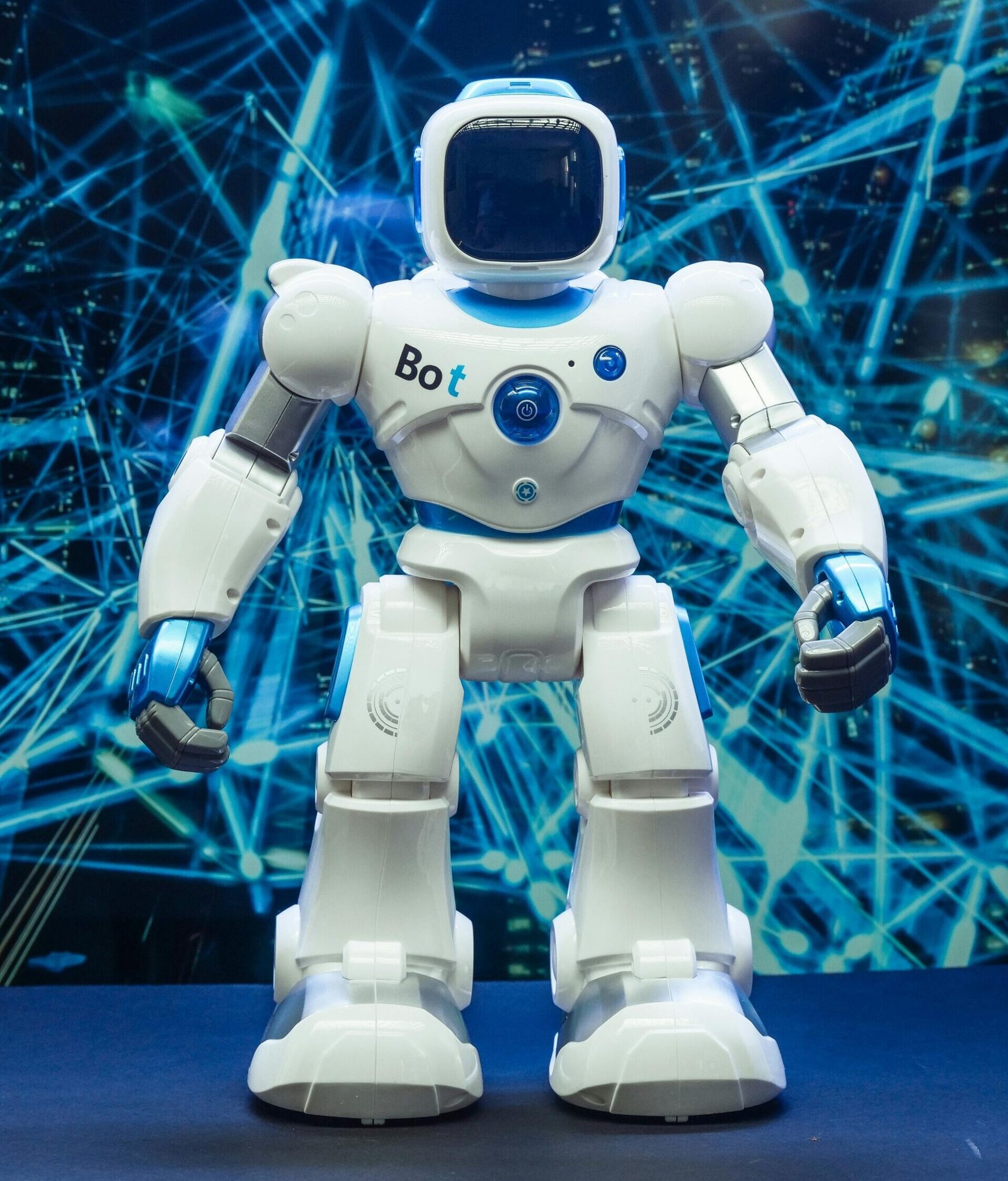Wharton AI expert Ethan Mollick says young job-seekers need to focus on something other than skills, advocating instead for an emphasis on core tasks and enduring human capabilities in an evolving professional landscape. Rather than chasing ephemeral technical proficiencies, success in an AI-driven world hinges on cultivating critical thinking, effective communication, and deep knowledge.
Key Implications:
- Task Mastery: Focus on mastering fundamental, enduring tasks like critical thinking, problem-solving, and creative ideation, as these core competencies provide a stable career foundation amidst rapidly changing AI-specific skills.
- AI Guidance and Evaluation: Cultivate the ability to provide clear instructions to AI and critically assess its outputs, leveraging deep domain knowledge and human judgment to ensure quality, accuracy, and strategic relevance.
- Essential Human Skills: Prioritize developing soft skills such as communication, leadership, and organizational prowess, alongside gaining broad knowledge, as these human-centric attributes become crucial for navigating an AI-augmented professional landscape.

Task Mastery Trumps Transient AI Skills for Career Longevity
For young job-seekers navigating an evolving professional landscape, a critical shift in career strategy is emerging. Wharton AI expert Ethan Mollick says young job-seekers need to focus on something other than skills, advocating instead for an emphasis on core tasks. This perspective suggests a re-evaluation of how individuals prepare for long-term career success in an AI-driven world.
The Ephemeral Nature of AI-Specific Skills
The rapid evolution of artificial intelligence inherently limits the long-term utility of narrowly defined AI-related skills. Professor Ethan Mollick of Wharton notes that such proficiencies “aren’t all that useful” and can “quickly make the skill somewhat irrelevant.” This transient characteristic poses a significant challenge for those who invest heavily in acquiring specific technical skills that may soon become obsolete.
Concentrating on ephemeral technological nuances can lead to a continuous, exhaustive cycle of retraining. Instead, a more sustainable approach acknowledges that the underlying principles of AI change less frequently than its applications. Therefore, understanding broader concepts proves more beneficial than mastering momentary tools.
Prioritizing Enduring Task Mastery
In contrast to fleeting technical skills, an enduring competitive advantage stems from mastering fundamental tasks. Young professionals should earnestly consider “what tasks they’re actually really good at,” as advised by Mollick. These core competencies, such as critical thinking, problem-solving, communication, or creative ideation, possess intrinsic value across diverse industries and technological shifts.
Focusing on these inherent strengths fosters adaptability and resilience in a dynamic job market. Cultivating mastery in these areas provides a stable foundation, allowing individuals to pivot effectively as industry demands evolve. This strategic emphasis ensures career longevity beyond the lifespan of any single technology.
AI’s Role in Strategic Task Distribution
Artificial intelligence is increasingly functioning as a sophisticated tool for “task distribution,” according to Mollick. AI systems can efficiently manage and delegate various operational components within job roles, thereby supporting areas where applicants might “struggle.” This augmentation allows human employees to concentrate on higher-order, more complex tasks where their unique cognitive abilities are indispensable.
This evolving dynamic highlights why focusing on enduring personal strengths provides a competitive edge over chasing rapidly outdated AI-specific skills. AI assists in optimizing workflows, enhancing efficiency, and even plays a role in identifying promising candidates. Fifty percent of HR executives are now using AI to hire top talent, leveraging these tools to refine their recruitment processes. Furthermore, AI integration in various fields demonstrates its impact; AI is accelerating processes by 40% and delivering a 20% ROI in creative and business sectors. Therefore, mastering fundamental tasks positions individuals to effectively collaborate with AI, amplifying their overall productivity and value within an organization.

Critical Human Judgment: Guiding AI Output and Cultivating Deep Knowledge
Ethan Mollick, a prominent Wharton AI expert, advocates a significant shift for young job-seekers. He asserts that professional success in an AI-driven future transcends traditional skill sets. As artificial intelligence increasingly automates routine processes, human capabilities in critical instruction, evaluation, and expansive knowledge become paramount. This transformative landscape demands that Wharton AI expert Ethan Mollick says young job-seekers need to focus on something other than skills to truly thrive professionally.
Mastering AI Instruction for Optimal Performance
The ability to deliver clear, precise instructions is fundamental for harnessing AI’s potential. Mollick emphasizes that “knowing how to provide clear instructions is crucial for maximizing the benefits of AI”. This goes beyond basic prompting; it involves a deep understanding of AI’s capabilities and limitations. Therefore, developing sophisticated communication skills for AI interaction is an indispensable asset for future employment.
This instructional clarity ensures AI systems produce relevant and high-quality outputs, minimizing inefficiencies. Job seekers must cultivate the acumen to articulate complex requirements concisely, guiding AI toward desired outcomes. Effective guidance elevates AI from a mere tool to a truly collaborative partner, amplifying human efforts.
The Indispensable Role of Critical AI Output Evaluation
Beyond mere instruction, the capacity to critically assess AI-generated content is equally vital. Mollick states, “Being able to be an expert enough in something to know whether it’s good or bad turns out to be really important” for judging AI’s output. This human judgment filters for accuracy, relevance, and ethical considerations that AI might overlook. Consequently, professionals must possess the domain expertise to discern quality and identify errors or biases within AI’s work. AI is accelerating creative and business fields, making this evaluative skill more critical than ever.
Evaluating AI output rigorously ensures that automated solutions genuinely serve strategic objectives and maintain high standards. It is not enough to simply use AI; one must actively validate its contributions. This crucial human oversight provides a necessary quality control layer, ensuring integrity and impact across various applications.
Cultivating Broad Knowledge and Specialized Expertise
In an era where AI handles routine information processing, the value of profound human knowledge dramatically increases. Mollick advises job seekers to focus on gaining “broad knowledge” and developing “expertise in specific topics.” This dual approach allows individuals to connect disparate ideas and offer unique perspectives that AI currently cannot replicate. Such comprehensive understanding is a formidable professional asset.
A strong knowledge foundation also empowers critical evaluation. Mollick points out that “a strong base in the humanities is useful” because AI machines are trained on a vast array of information. Humanities foster critical thinking, ethical reasoning, and understanding of human contexts, which are essential for guiding and assessing AI responsibly. Truly, young job-seekers need to focus on something other than skills purely dedicated to operating technology.
Therefore, aspiring professionals are encouraged to actively pursue diverse fields of study and cultivate deep understanding in chosen areas. This intellectual breadth and depth provide a strategic advantage in a rapidly evolving job market. Investing in versatile knowledge truly prepares one for the challenges and opportunities of AI integration. Fifty percent of HR executives are now leveraging AI to identify top talent, emphasizing this profound shift.

Soft Skills Reign Supreme as AI Automates Technical Functions
The evolving professional landscape increasingly emphasizes the indispensable nature of soft skills, especially as artificial intelligence (AI) assumes technical operational roles. Wharton AI expert Ethan Mollick observes that young job-seekers must prioritize abilities beyond conventional technical proficiencies, signaling a fundamental shift in workforce demands. This reorientation prioritizes human-centric competencies over tasks increasingly amenable to automation.
AI’s pervasive influence notably threatens entry-level positions across diverse industries. As AI systems become more sophisticated, they perform routine and technical tasks with enhanced efficiency, compelling employers to seek candidates possessing skills that AI cannot replicate. Consequently, human interaction, strategic thought, and adaptive capabilities gain paramount importance in an AI-augmented environment.
Indeed’s Hiring Lab identifies communication, leadership, and organizational prowess as newly crucial for job applicants. These interpersonal and managerial abilities are becoming significant differentiators in a competitive job market. Effective communication ensures clear directive transmission and collaborative synergy, even when supported by AI-driven analytical tools.
Leadership skills empower individuals to guide teams, foster innovation, and navigate complex challenges that demand human judgment and empathy. Mollick’s extensive consultations with entities like JPMorgan, Google, and the White House underscore the authoritative relevance of these insights for future workforce requirements. Moreover, organizational prowess facilitates strategic planning, resource allocation, and project management, functions where human oversight optimizes AI-driven processes. Many HR executives are already leveraging AI to identify top talent, focusing on these critical attributes recognizing this paradigm shift in hiring.
This evolving demand highlights soft skills as indispensable in environments where AI handles the majority of technical work. Such capabilities enable individuals to leverage AI effectively, rather than compete directly with it. For instance, AI can significantly accelerate creative and business fields, yielding substantial returns on investment by automating specific processes with up to 40% faster execution. However, the interpretation, application, and strategic direction of these AI-generated outputs remain firmly within the human domain, necessitating advanced soft skills. Therefore, developing robust interpersonal and management capabilities is no longer merely advantageous but critically essential for professional success.
Featured image generated using Flux AI
Business Insider: “Wharton AI expert Ethan Mollick says young job-seekers need to focus on something other than skills”
